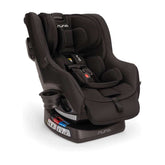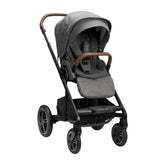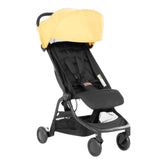Pro Tips for Breastfeeding Success: What You Need to Know

Updated: 18 Dec 2024
Even for the most committed mothers, breastfeeding can be a challenging experience. Though nursing is quite natural, the process doesn’t come naturally to many women. Those challenges can become a major source of guilt and anxiety for first-time moms. Fortunately, with the right tips and a lot of perseverance, you can navigate those first few days and weeks of breastfeeding successfully.
What Are the Advantages of Breastfeeding?
Breast milk is the ideal food for newborns and the only food a healthy, full-term infant needs for the first 6 months of life. It’s packed with antibodies that naturally protect infants from everyday illnesses. Breast-fed babies are less likely to develop issues with asthma, SIDS, allergies, or anemia, and are generally sick less often.
Moms benefit too! According to the American Academy of Family Physicians, women who breastfeed recover from pregnancy more quickly, with less post-partum bleeding and faster weight loss. Breastfeeding also correlates with a reduced risk of osteoporosis and breast, uterine, and ovarian cancers.

Tips to Get Breastfeeding Off to a Successful Start
1. Educate yourself about breastfeeding.
As a new mom, the most important tip to prepare for successful breastfeeding is to learn as much as you can. Read books, take a lactation class, or even consider joining a support group for breastfeeding moms. If you arm yourself with plenty of accurate information while you’re pregnant, you’ll be more prepared for and better able to respond to potential issues after your baby is born. Breastfeeding is a skill that, like any other, takes lots of practice to master.
2. Feed your newborn as soon as possible after birth, ideally within the hour.
Continue to breastfeed as frequently as your infant seems to want it. Ask if there is a lactation consultant on staff who can work with you before leaving the hospital.
3. Avoid supplementing with formula.
If your baby has fluids other than breast milk they will nurse less, and your breast milk supply will decrease. Frequent, unrestricted suckling at the breast benefits your baby. It also ensures that your milk supply continues to meet your baby’s needs.
4. Understand that breastfed babies eat more frequently than formula-fed babies.
Breast milk is easier to digest than formula. Consequently, most breastfed babies eat more often than those on formula, about every 1 to 3 hours during the first month and a half. That’s about 8 to 12 times a day. The good news is that this ultimately works out in a nursing mom’s favor. Since nursing works on a supply and demand basis, nursing more frequently will help increase your milk supply.
5. You may need to wake your infant if they fall asleep early in the nursing session.
Babies are often soothed to sleep during nursing. Ensure they are swallowing frequently and sucking with a steady rhythm.

Breastfeeding Tips First Week: What to Expect the First Time You Breastfeed
Babies come into this world knowing how to suckle, though this instinct is stronger in some newborns than in others. This instinct is most powerful in the moments immediately following birth. Try nursing your baby within the first hour after delivery. Nursing will signal your mammary glands to begin increasing milk production (which helps you begin to establish a dependable supply). It also stimulates uterine contractions, decreasing postpartum bleeding.
Your baby’s first meal will be colostrum, a thick yellowish fluid that provides all the nutrients your newborn needs in the first few days of life. It’s low in fat, easy to digest, and full of white blood cells. These cells protect newborns against infection and help your baby start fighting infections for himself. Colostrum is super concentrated, full of protein, and packed with nutrients – all your baby’s tiny tummy needs at first. Within a few days of delivery, your milk will eventually “come in.” This means your breasts will begin to feel fuller as your milk increases and becomes creamier and whiter in color.
The first nursing session also helps your baby learn how to suckle at your breast. Positioning your infant next to your chest against your skin will help them smell the colostrum and want to latch. This is a learning experience for both newborn and mom, and it takes time to get the hang of it.
It’s not unusual for a newborn to be fairly disinterested in nursing at first. It’s more important at this point to simply continue encouraging frequent feedings than worry about the length of time spent on each nursing session. In the days immediately following delivery, breasts only contain a tiny amount of the critical colostrum. They’re also softer and more pliant, making latching a bit easier for a newborn as they learn to suckle.

Tips on How to Make Sure Baby is Breastfeeding Enough
After the colostrum transitions into mature milk, your newborn should have approximately 6 to 8 wet diapers and 2 to 3 bowel movements every day. Breastfed baby poop is often yellow, seedy, and runny, while a formula-fed baby's poop may be darker and thicker. Some infants poop every time they nurse.
If your newborn isn’t having enough wet diapers or bowel movements or if you’re worried they’re not getting enough to eat, contact your doctor. Weighing your infant is a great way to check that they’re growing at an appropriate rate. Breastfed babies are typically back to their birth weight after about 2 weeks.
Tips on Preventing Sore Nipples When Breastfeeding
Sore, cracked nipples are extremely painful. The best way to help prevent them is to make sure your baby is positioned and latched on correctly.
- Keep baby’s hips, shoulders, and ears in a straight line. Support the neck and head from behind with one hand, and use your other hand to support your breast. Curve the breast-holding hand, with your thumb on top of the breast and fingers below, supporting it. Do this for every feeding for at least the first six weeks.
- Gently stroke the baby’s lips with the tip of your nipple. This encourages the baby to open his or her mouth and begin nudging your breast. Wait for a wide-open mouth – almost like a yawn. When the baby’s mouth is open wide, raise your breast with your hand and push your entire nipple into the mouth.
- Try to simultaneously use your other hand or arm to bring the baby’s head closer to your body. Baby’s mouth should wrap securely onto the entire areola with the tongue under the nipple.

Breastfeeding Tips for Latching
Poor latching, or when your baby can’t properly attach to your breast, is one of the main causes of pain. To fix this, try different techniques, like using a breastfeeding pillow or making sure your nipple is positioned properly or tilting your infant’s head back a bit. If that doesn’t work, get help from a lactation specialist right away. Don’t try to force yourself to nurse in pain, as this may only worsen the issue and cause frustration.
If your nipples are red, itchy, or swollen, or if you experience a burning sensation while breastfeeding, you and your baby may have developed thrush, a type of yeast infection. Seek medical treatment as soon as possible for both you and your newborn to avoid passing it back and forth.
Get More Breastfeeding Help
If you’re struggling with breastfeeding and feel like you want to give up, remember many women are facing the same challenges you are. Reach out to La Leche League to get the help you need today.









